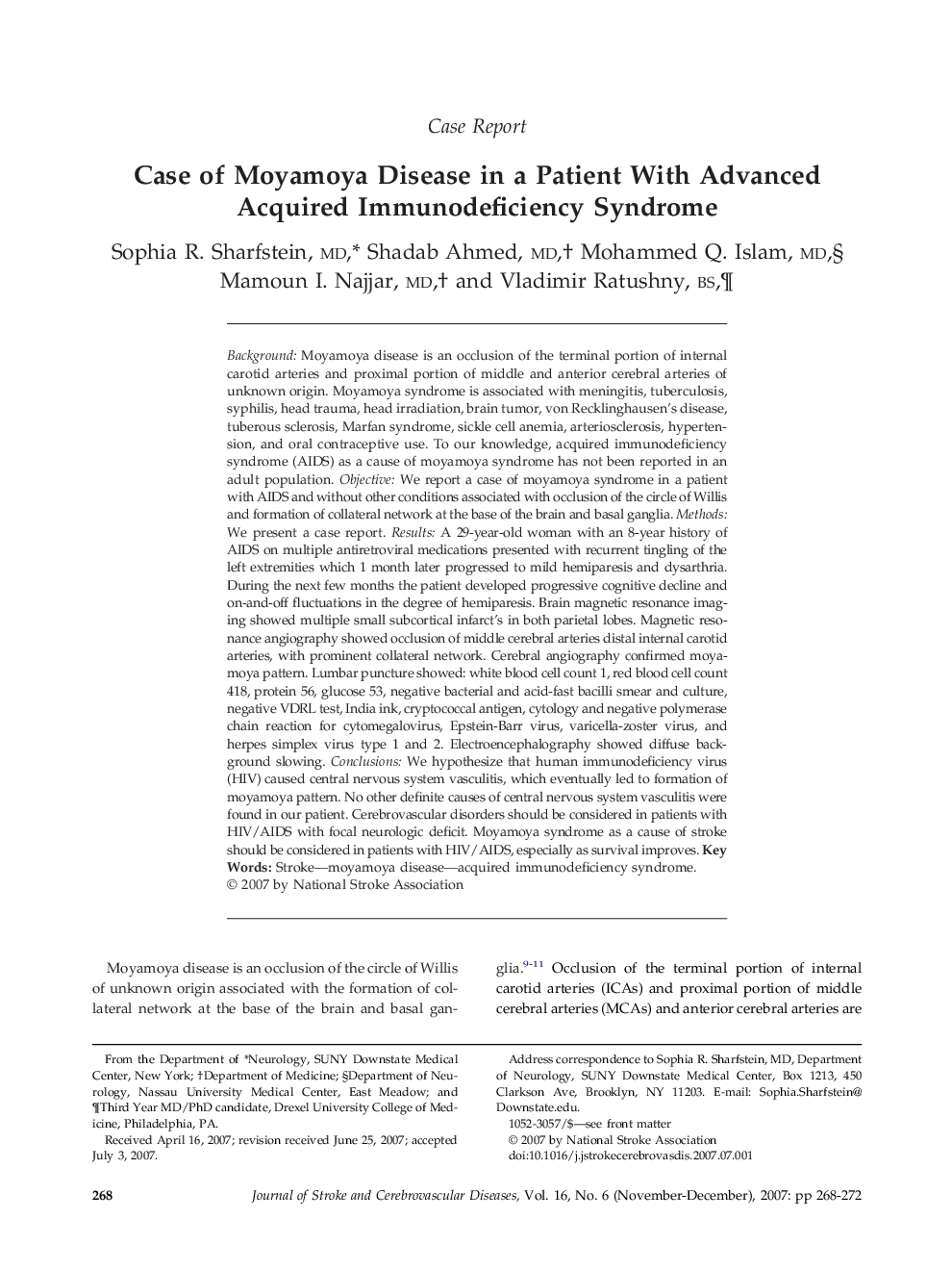| کد مقاله | کد نشریه | سال انتشار | مقاله انگلیسی | نسخه تمام متن |
|---|---|---|---|---|
| 2704681 | 1144698 | 2007 | 5 صفحه PDF | دانلود رایگان |

Background: Moyamoya disease is an occlusion of the terminal portion of internal carotid arteries and proximal portion of middle and anterior cerebral arteries of unknown origin. Moyamoya syndrome is associated with meningitis, tuberculosis, syphilis, head trauma, head irradiation, brain tumor, von Recklinghausen’s disease, tuberous sclerosis, Marfan syndrome, sickle cell anemia, arteriosclerosis, hypertension, and oral contraceptive use. To our knowledge, acquired immunodeficiency syndrome (AIDS) as a cause of moyamoya syndrome has not been reported in an adult population. Objective: We report a case of moyamoya syndrome in a patient with AIDS and without other conditions associated with occlusion of the circle of Willis and formation of collateral network at the base of the brain and basal ganglia. Methods: We present a case report. Results: A 29-year-old woman with an 8-year history of AIDS on multiple antiretroviral medications presented with recurrent tingling of the left extremities which 1 month later progressed to mild hemiparesis and dysarthria. During the next few months the patient developed progressive cognitive decline and on-and-off fluctuations in the degree of hemiparesis. Brain magnetic resonance imaging showed multiple small subcortical infarct’s in both parietal lobes. Magnetic resonance angiography showed occlusion of middle cerebral arteries distal internal carotid arteries, with prominent collateral network. Cerebral angiography confirmed moyamoya pattern. Lumbar puncture showed: white blood cell count 1, red blood cell count 418, protein 56, glucose 53, negative bacterial and acid-fast bacilli smear and culture, negative VDRL test, India ink, cryptococcal antigen, cytology and negative polymerase chain reaction for cytomegalovirus, Epstein-Barr virus, varicella-zoster virus, and herpes simplex virus type 1 and 2. Electroencephalography showed diffuse background slowing. Conclusions: We hypothesize that human immunodeficiency virus (HIV) caused central nervous system vasculitis, which eventually led to formation of moyamoya pattern. No other definite causes of central nervous system vasculitis were found in our patient. Cerebrovascular disorders should be considered in patients with HIV/AIDS with focal neurologic deficit. Moyamoya syndrome as a cause of stroke should be considered in patients with HIV/AIDS, especially as survival improves.
Journal: Journal of Stroke and Cerebrovascular Diseases - Volume 16, Issue 6, November–December 2007, Pages 268–272